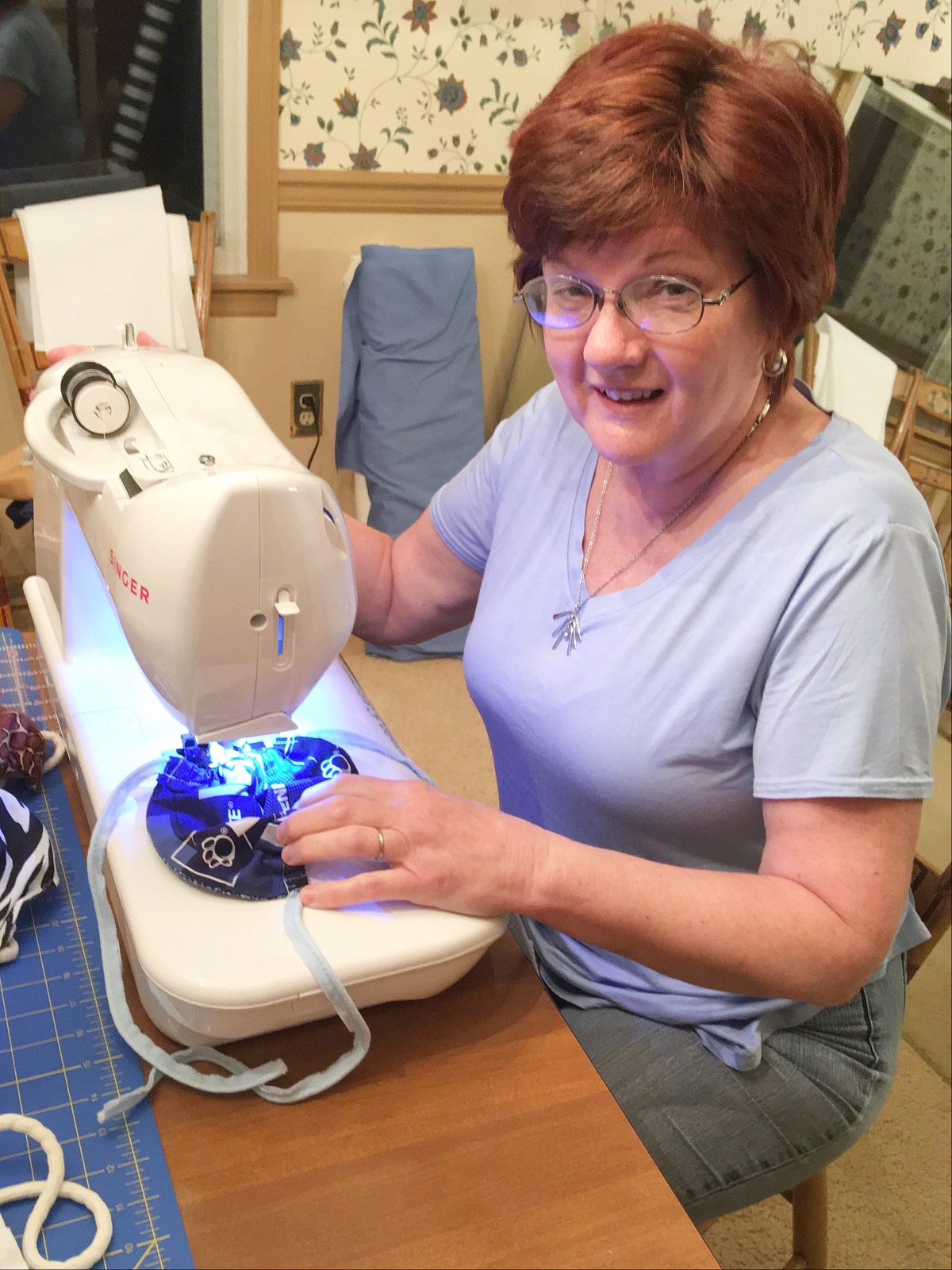Sew appreciated: St. Joseph volunteer services director says thanks with hand-sewn masks

While working from home during the early days of Penn State Health St. Joseph’s response to COVID-19, Barbara Moyer, director of volunteer services, struggled with a faulty internet connection that hampered her efforts to get work done. Frustrated, she approached her boss with the idea that she would use some of her workday to sew face masks for every St. Joseph volunteer.
“I wanted to do it, so our volunteers knew we appreciated them,” she says, explaining that they had temporarily shut down the volunteer program in March. “We all know they give so many hours in service without any form of payment. I thought this would be an appropriate way to recognize their efforts.”
It wasn’t an unusual idea for Moyer, who has sewn volunteer gifts in years past and distributed them at their annual appreciation dinner. Traditionally celebrated during National Volunteer Week in April, this year’s event was postponed due to the pandemic.
Once given the go-ahead, Moyer made some slight adjustments to a mask pattern approved by the Centers for Disease Control and Prevention and got to work. Drawing from her personal supply of fabric and trim, she made nearly 130 masks.
“In the beginning, it took me about one half hour on each mask until I found a technique that worked,” she says of her process. “By the time I got done, I could make one mask in six minutes.”
Before she could safely mail them to volunteers, Moyer laundered the masks to ensure they would hold up under repeated washings.
“I figured if they didn’t survive my washer — and some didn’t — I needed to know up front,” she says. She also emailed the volunteers to let them know they were coming. “I washed them, dried them and put them right in the package, so the volunteers would know they were as safe as any can be.”
The response was strong with many volunteers sending photos of themselves wearing the masks.
“Some of their responses even made me cry,” admits Moyer, explaining that one volunteer who is at high-risk for contracting coronavirus had been using a paper towel and rubber bands for protection. “They really liked being remembered. It made my day how much it meant to them.”
If you're having trouble accessing this content, or would like it in another format, please email Penn State Health Marketing & Communications.
